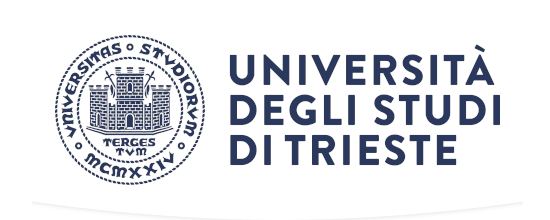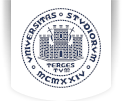Enrollment in the Master's Degree Program in Engineering for the Energy Transition is subject to the satisfaction of the curricular requirements and the verification of the personal preparation of the candidates.
Curricular requirements
To access the Master's Degree in Engineering for the Energy Transition, you must have a degree obtained in the Degree Classes in Industrial Engineering (Class 10 of Ministerial Decree 509/1999 and Class L-9 of Ministerial Decree 270/2004) or in Civil and Environmental Engineering (Class 08 of Ministerial Decree 509/1999 and Class L-7 of Ministerial Decree 270/2004).
As an alternative to holding a degree in the degree classes indicated above, graduates in possession of a three-year degree in Engineering are admitted to the Master's Degree in Engineering for the Energy Transition, provided that specific minimum numbers of credits have been obtained in their curriculum in sets of scientific-disciplinary sectors as defined below:
- At least 18 credits of courses in mathematics or in the following SSDs: MAT/03, MAT/05, MAT/06, MAT/07, MAT/08;
- At least 9 credits of courses in physics or in the following SSDs: FIS/01 and FIS/02;
- At least 6 credits of courses in chemistry or in the following SSDs: CHIM/03 and CHIM/07;
- At least 6 credits of courses in disciplines in the electrical area or in the following SSDs: ING-IND/31, ING-IND/32 and ING-IND/33, or in FIS/01 and FIS/02 (additional to the 9 previously mentioned ) or FIS/03;
- At least 6 credits of courses in disciplines in the energy area or in the following SSDs: ING-IND/08, ING-IND/09, ING-IND/10, ING-IND/11;
- At least 6 credits of courses in SSD ICAR/08.
To access the course relating to building systems, the presence in the curriculum of courses for a total of at least 9 credits in the following SSDs is also required: ICAR/06, ICAR/09, ICAR/10 or ICAR/17.
Students in possession of qualifications obtained abroad are admitted to the Master's Degree in Engineering for the Energy Transition if their qualification is recognized as suitable in relation to the degree classes indicated above, or if they possess the minimum number of credits in certain SSDs as indicated above, following conversion of credits or securities held. To this end, a Commission designated by the Master's Degree Program Council will evaluate the university certificates certifying the exams passed, the respective grades and any credits, the lesson hours and the programmes.
Verification of personal preparation
Admission to the Master's Degree Program in Engineering for the Energy Transition requires verification of adequate individual preparation. A degree grade greater than or equal to 95/110 (converted in the case of a qualification obtained abroad) is considered sufficient to certify adequate individual preparation.
For those who have obtained a degree grade lower than 95/110, admission is subject to an interview, to be carried out also through telematic tools, with a Commission designated by the Master's Degree Program Council in order to evaluate the preparation of candidates regarding the contents relating to the energy and electricity areas. Based on the outcome of the interview, admission to the Master's Degree Program is accepted or refused.
Language skills
The verification of knowledge, in written and oral form, of the English language, corresponding at least to level B2 of the common European framework of reference for the knowledge of languages, is part of the verification of the candidate's personal preparation. This competence can be deduced from the curriculum studiorum or from a suitable certification issued by an external structure recognized as valid by the University. In all other cases, admission is subject to an evaluation via a test prepared by the University.
Admission procedure
For admission to the Master's Degree in Engineering for the Energy Transition, some curricular requirements relating to the candidates' previous studies and the qualifications obtained are assessed. Possession of a three-year or master's degree or qualification obtained abroad equivalent to one of the previously mentioned qualifications is required. It is also required that candidates have obtained at least a minimum number of credits in some specific scientific-disciplinary sectors (SSD) (as specified in the Teaching Regulations of the Master's Degree Course in Engineering for the Energy Transition).
The adequacy of the preparation is assessed by the Master's Degree Program Council on the basis of the previous curriculum studiorum of the candidates. The Council may subject candidates to an interview, to be carried out also through telematic tools, by a Commission designated by the Council itself. The test must also be taken in the event that some curricular constraints are not completely satisfied, for example due to courses with similar programs but supported by the candidate in similar scientific disciplinary sectors, or in cases in which it is not possible to find a clear correspondence between exams passed and credits required as for female and male graduates in foreign study courses.


